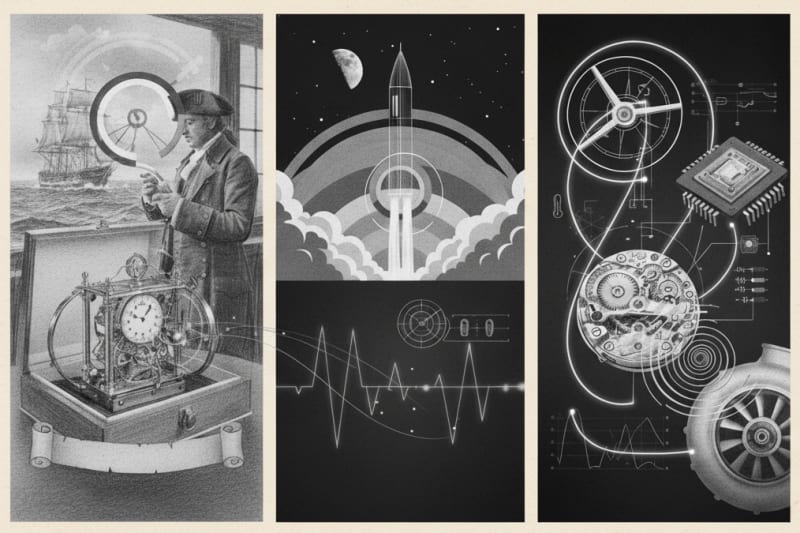The best and most important (Marine) Chronometers between the early 18th and early 20th century were made by the back-then greatest naval power, UK and it could be assumed that this is not only a coincidence but a correlation: it is a necessity to have an accurate watch / clock to excel on the open sea. Sure, the excellence of the British chronometer-manufacturers on the one hand side pushed the British Navy and on the other hand side the admiralty pulled the Chronometer-makers by offering high prices for excellent results. And so the time of the conquering of the oceans was kept by these mechanical marvels -- the best and most precise of their era.
The conquering of Space in the mid and second half of the 20th century was timed by the first electronic watches & clocks -- the Max Hetzel-invented tuningfork-movement cal214 Accutron and the early quartz-clocks alike. Or to put in a more spicy way: for the journey to the moon in 1969 two ingredients were necessary and another was not. Wernher von Braun and the electronic Bulova Accutron were both absolutely necessary; the mechanical Moonwatch by Omega was not.
By the way, for both categories (electronic & mechanical watches & clocks) the variance in temperature is the most disturbing factor upon reaching the goal of absolute precision. And so it does not come as a surprise that both sides of horology spent a huge part of their efforts in the pursuit of perfect precision (even in changing environments) on so called Temperature Compensation (TC). The TC is for a mechanical- and also for a quartz-movement what is the turbocharger for a Diesel-engine -- sure, it works without; but once you have used it you never want to go without again.
